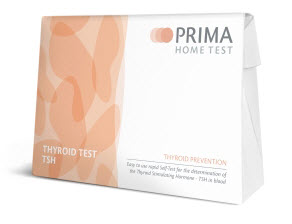What is Hypothyroidism?
In the early stages, Hypothyroidism, also referred to as an underactive thyroid, may not cause obvious health problems; however, if left untreated, hypothyroidism can cause a variety of serious health issues like heart disease, infertility, obesity, and joint pain.
The thyroid sits at the front of your neck; it’s a small gland that releases hormones to ensure energy is released to almost every organ in your body. It’s responsible for controlling how your heart beats and how your digestive system works, and your body’s automatic functions will begin to slow down unless it receives the right amount of thyroid hormones.
Hypothyroidism typically affects women more than men, and it’s usually people over the age of 60; however, it can start at any age. It can be discovered after symptoms begin, or even through a routine blood test. Rest assured that once you’ve been diagnosed with hypothyroidism, treatment is effective, simple, and safe. Treatments usually involve supplementing your existing low hormone levels with artificial types of hormones, and it’s these hormones that will help return the functioning of your body back to normal.
Medication for hypothyroidism can be taken at a time suitable for you, either with or without food, provided you stick to the same routine.

Hypothyroidism, Diet and Medications
There’s no actual diet for hypothyroidism, even though there are many diet claims surrounding this condition. Research has not found that avoiding or eating specific foods will help with thyroid function in those with hypothyroidism. So what should we consider when discussing hypothyroidism and diet?
Hypothyroidism and Iron
We do know that hypothyroidism can be caused by an iodine deficiency. In developed countries, though, including the UK, because of iron additives in salt and other foods, thyroid disease caused by iron deficiency has been practically eliminated. An alternative medical practitioner may suggest taking kelp supplements or iodine tablets, but if people with hypothyroidism consume a balanced diet then supplementing with iodine becomes unnecessary. It should be noted that, in some people, hypothyroidism can actually be caused by consuming too much iodine.
Hypothyroidism and Soy
Supplementing with large amounts of soy could affect the production of thyroid hormones, but it wouldn’t cause hypothyroidism in those who are not also deficient in iodine. The debate on whether soy should be avoided by people who have hypothyroidism is still ongoing. While there’s no evidence that soy should be completely avoided by those who have hypothyroidism, there is a long-held belief that soy negatively affects the body’s ability to absorb synthetic thyroid hormones, which is what most people are prescribed.
Current advice is that products containing soy should not be consumed for at least 4 hours after thyroid medication has been taken. Incidentally, this advice also applies to other products like some antacids (those containing aluminium hydroxide and calcium) and iron supplements.
Why Does Diet Matter for Hypothyroidism?
While there’s no specific “hypothyroidism diet” that everyone needs to follow, paying attention to your diet can help manage symptoms and optimise your treatment. You see, having an underactive thyroid can impact your metabolism, energy levels, digestion, and more. Making smart dietary choices becomes crucial.
For starters, hypothyroidism tends to slow your metabolism down. This can make it easier to gain weight if you’re eating the same amount as someone with a normally-functioning thyroid. Focusing on foods that are nutrient-dense rather than calorie-dense can prevent unintended weight gain. Load up on vegetables, fruits, lean proteins, and healthy fats.
Your sluggish metabolism from hypothyroidism may also leave you feeling fatigued and sluggish. Combat that by including foods rich in iron, vitamin B12, vitamin D, selenium, and zinc. These nutrients play a role in thyroid hormone production and regulation. Good sources include eggs, meat, fish, dairy, nuts, and seeds.
Hypothyroidism can sometimes contribute to digestive issues like constipation too. Stay hydrated and eat foods high in fiber like beans, berries, and whole grains to keep things moving. Fermented foods like yogurt, sauerkraut, and kombucha may also aid digestion by boosting healthy gut bacteria.
Additionally, certain foods and beverages can interfere with your synthetic thyroid medication’s absorption if consumed too close together. As mentioned, separate things like soy, iron supplements, calcium-rich foods, and even coffee by at least 4 hours before or after your daily dose.
Overall, focus on an anti-inflammatory, balanced diet filled with nutrient-dense whole foods. This provides your body with the fuel it needs to make thyroid hormones and offsets some of hypothyroidism’s unpleasant effects. With a little mindfulness around what’s on your plate, you can seamlessly complement your medication.
Hypothyroidism and Calcium
It’s not harmful for patients with hypothyroidism to consume calcium by itself; it’s antacids containing calcium or calcium supplements that can have a negatively effect on the absorption of prescribed thyroid hormone replacement medications. These include thyroid extract supplements as well as synthetic thyroid hormones that contain liothyronine (Cytomel) and levothyroxine (Unithroid, Synthroid, and others).
Mostly, the interference occurs when calcium supplements are taken at either the same time or close to the same time as thyroid hormone replacement medication.
Other Supplements
Interestingly, the same effect can be caused by other supplements, like those that contain magnesium and iron. It’s also worth noting that absorption can be affected proton pump inhibitors as well as some drugs prescribed for lowering cholesterol that contain colestipol (Colestid) and cholestyramine (Prevalite).
Take Other Products Before or After Your Medication
Again, as with advice for soy consumption, the best way to prevent these adverse interactions is to ensure these products are used several hours before or after taking your thyroid medication. Even supposedly harmless foods like walnuts and an excess of dietary fibre can have an effect on the absorption of medication subscribed for hypothyroidism.
To avoid any such complication, we strongly suggest that the best way to manage your hypothyroidism is to avoid dietary extremes and take your medication as prescribed. Of course, if you have any concerns at all about taking a multi-vitamin with minerals, you need to speak to your health care provider.
Photo by Anthony Cunningham for Zoom Testing
Zoom Health is a leading UK supplier of Home Health Tests and Earplugs





